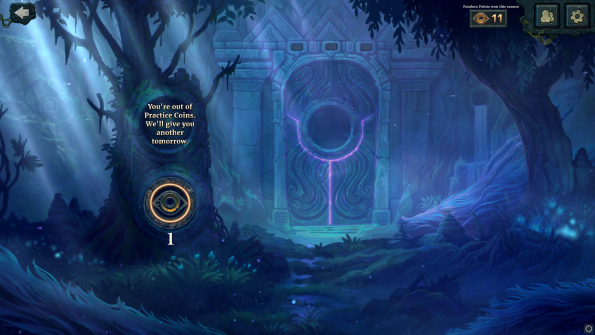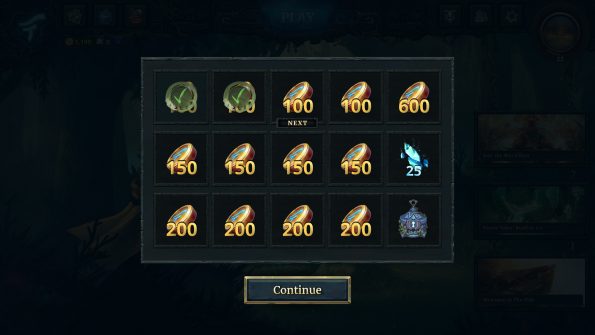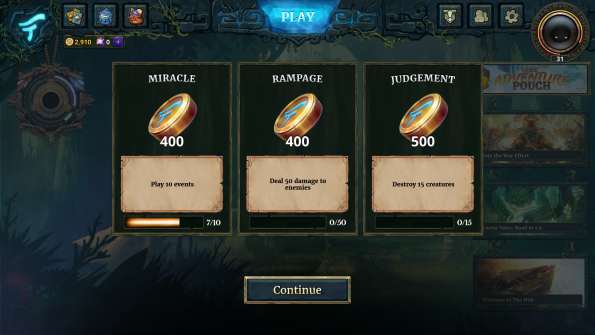Game Devs and the value of Time – Part 1
Two weeks ago, a wrote a review about a Free to Play game called Faeria. I kept playing the game for a while until this hits me: I’m playing because I feel like I must go back in the game. Why did I feel like that? Quite simple, because of returning habits mechanics. Implanted in the game, they are systems that require me to log back in to do something in it, and if I don’t, I might lose that opportunity forever. The whole development of the game is built upon the player coming back again and again. Faeria is a free game, and like many in this genre, this is how they pay themselves, by taking your time away from you and creates habits for you to spend more time.
Some would say it’s only fair because these games are free. Economically speaking, it makes sense, but while considering social values, it’s a pathologic way to develop games, by creating bad habits on human reactions. The game development’s built on habits such as the fear of missing out, infinite loop of unfinished tasks and addiction. Let’s see how these mechanics are done in Faeria. Let’s say you are opening Faeria for the first time today, just after logging, you’ll see this screen.
but while considering social values, it’s a pathologic way to develop games, by creating bad habits on human reactions.
This is your daily tracker, if you logged in today, you’ll get a check mark and the reward for that day. And as you can see, after a couple’s day, you’ll get a special reward! Free Coffee after you bought 6! Same difference, this is to create a loyalty habit. You don’t even have to spend, only 2 minutes of your time by opening the the game. This part only shows how much time, without any engagements, is worth a lot of money. Hey, since you’re in the game, let’s show you the next hook! *grin*
The good Daily Quest System has shown here. You get a new quest every day and the most important part, you can never have more than three. If you want to get some free currency, you’ll have to finish those at least once every three days. Usually, if you’re lucky, you can complete them by playing 3-4 matches, for maybe an hour of gameplay at best. So, while you play the game an hour, you’ll spin the wheel of the server, your presence makes the game alive and running. If you play the game in PVP, at some point, you’ll face more and more players that spent money in the game and they’ll keep beating you because they have better cards and since you spent already 20 hours to get that far, you might be considering chipping in or keep on playing forever to get free currency to get more cards. You know what? I don’t like this game mode anyway, so let’s see what else I can do. Oh, right the Deck Drafting mode Pandora!

So, I can get a miniature run and IF I win 3 times, I’ll get one third of a real piece that gives me access to a full Pandora run FOR FREE! Sounds greats, but what’s that? I can only get a miniature chance of the game mode per day. Are we seeing a pattern here? The game, in no matter what the situation, will ask me to spend time, to spend that time before a set period and block me to play too much, so I can come back tomorrow to play again. Unless I spend money in the Free to Play game, you’ll always have to infinitely spend time in it because even if I manage to get all the content for free, they’ll release new cards and collectibles.
And thus, even if the core is good, the game’s not built for our enjoyment. The mechanics are placed to create habits on the player and to make them spend more time in the game with the illusion they do it for free, while in fact they overlook the value of their own time. The worst thing of this visceral game development is the fact that it’s been there for a while and it even affects the game you need to buy to play.
In the next chapter of this series, I’ll cover where did these mechanics originate from, how it became the leading way to build games nowadays, how it affects the current market and how we can prevent ourselves to be victims of that system by understanding our human reflexes realizing the power and worthiness of our own time.



